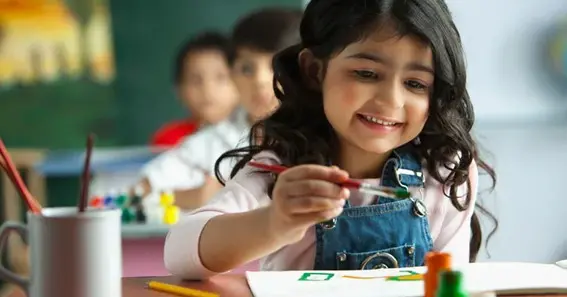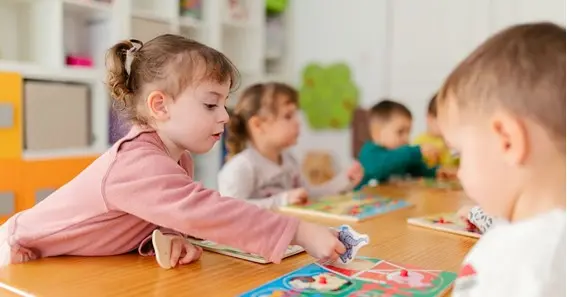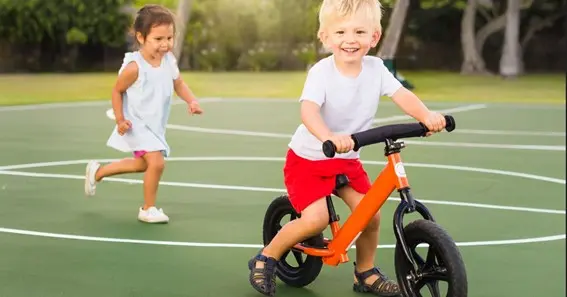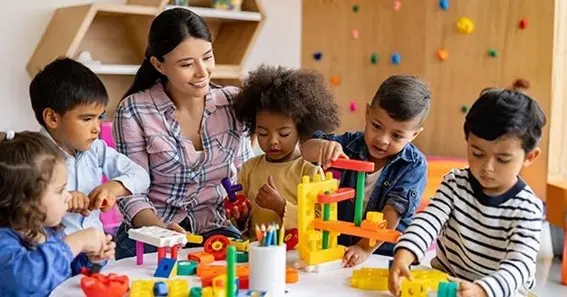What age is kindergarten? Once children are of the right age, they should begin kindergarten. Kindergarten is a significant step in child development, and it should take the parent’s effort to assess whether this is the right time for their children to go to school. This paper focuses on the ordinary time children start school and the best criteria for making such determinations. Do not stop reading this post on what age is kindergarten for further down to get your answer to this question.
What Age is Kindergarten?
Children about five years old are suited for academics in kindergarten, with slight differences according to countries, states, or even school districts in some cases. However, the difference in the time when pupils come to school is brought about by the non-uniform cut-off dates in various states in America for determining their eligibility. For example, children aged four can join, while two years later, there are six-year-olds.
Earlier in this post about what age is kindergarten a brief idea was given about when can kid go to school in the USA.
Important Factor for Studying in Kindergarten

In planning a child’s admission to kindergarten, the most crucial factor is the readiness of the child, for instance, how well they have developed socially, emotionally, cognitively, and physically to be ready for school. A kid who can obey simple instructions, relate well with fellow school children, and be comfortable away from their parents might be more prepared for pre-primary education.
Cut-Off Dates and Local Regulations in Kindergarten
Kindergarten enrollment dates have different deadlines in different places. In some US states, for example, kids must be five years old on or before September 1st to join school that academic year. Such rules seek to ensure that children are close in age and development, which will help create a more integrated classroom for learning. Local regulations should be taken into consideration as parents seek clarity.
Preschool Experience of Kids in Kindergarten

Going to preschool can significantly affect how prepared a child is when they start elementary school. Early childhood learning institutions help kids begin adapting to orderly education settings by instilling the ability to follow schedules. Meanwhile, arts features assimilate socially or other basic academic models in this age group.
Vitality of Children Differences in Kindergarten
Not all children are equal and may differ significantly in their kindergarten readiness; every child’s ready-to-go levels for kindergarten are different. Some kids may be so developed that they qualify to join kindergarten earlier than others, yet others would require an extra year for development. In contemplating this critical step of school starting, parents must consider what their kids do best and what could be problematic.
Read on what age is kindergarten to know more about this topic.
Value of Emotional and Social Maturity among Children

Maturity in social and emotional dimensions highly matters when evaluating children’s preparedness for grade school. The possibility of moving smoothly to grade one is most probable in those who can handle their feelings properly, interact appropriately with peers, and engage in group games. Thus, such expertise is crucial in fostering good relations and performing well during team studies.
Cognitive Abilities in Kindergarten
Cognitive readiness in early childhood represents being able to think, learn, or solve problems by a child. Cognitive abilities characteristic of preschoolers are literacy and numeracy basics, sustained concentration, and understanding of multi-step directives. Examination of such areas may indicate whether a child reader preparing for kindergarten faces any educational difficulties.
Importance of Physical Development

Before a child enter kindergarten, they must have developed their gross and fine motor skills for motor development to cover physical well-being. Some activities that kids should do before they start school include holding pencils, cutting paper with scissors, or being physically active.
Parental and Teacher Observations in Kindergarten
When deciding if a child is prepared for kindergarten, getting input from their parents and teachers is very helpful. Given that parents comprehend, their children’s behaviour as well as potential capabilities to a great degree and teachers can give expert opinions that are founded on their understanding of infant growth and knowledge in the field thus, working together with them can help in making a more precise evaluation on whether they are set for school.
Conclusion
To conclude about the topic of what age is kindergarten details of each aspect is given in the above paragraph. There are so many factors to consider when deciding the correct age at which a child should start going to kindergarten. These could range from how much they have grown emotionally, physically, and socially to their mental capacity, whether your local area sets up any regulations on this matter, if one has been attending preschool or not, and one’s traits like emotionality.
FAQ
At what age do children typically start kindergarten today?
Most children today start kindergarten around the age of five, though this may depend on local laws and specific deadlines, making it possible for some kids to commence it at four or even six years old in some states.
When it comes to knowing whether a child is fit for kindergarten?
Look at his behavior towards others, his head, heart, and hand development. His ability to obey commands, engage with other children, regulate feelings, and carry out rudimentary scholastic chores sheds light on the subject. Additionally, having a chat with the teachers or medics may be informative.
Can having my child start kindergarten too early or too late influence their development?
If you start kindergarten prematurely, your child may face difficulties in coping with high academic or social demands placed on them at an early stage of their school life. Conversely.
How does preschool contribute to preparing children for kindergarten?
It lays a valuable foundation that helps prepare children for kindergarten by introducing structured learning environments, routines, and socialization to them. In addition, since it makes it easier for children to transition from home life to school life (which can be intimidating), engaging in cooperative play becomes essential; hence, basic literacy also has a vital role in numeracy.
Can kids demonstrate readiness for school?
For the child showing readiness levels above their age level, significantly if below the required age, but still showing signs of being prepared, one should consider discussing the matter with the nearby school officials. In some schools, such assessments may help and, at the same time, motivate them.
Sources:
https://www.care.com/c/kindergarten-101-what-is-kindergarten/










